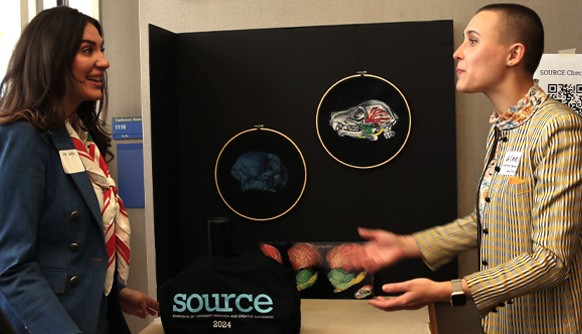News
Video: Protecting K-12 LGBTQ Students From Bullying
October 27, 2017
Every state has laws and policies to protect students from bullying, and educators who teach in K–12 classrooms are on the front line of prevention. Some of the most vulnerable students are LGBTQ youth. In NYIT’s latest Facebook Live session, Daniel Cinotti, Ph.D., NYIT assistant professor of School Counseling in the School of Interdisciplinary Studies and Education, and Justin Beauchamp, associate director of Campus Life, discuss how educators can create a culture of safety and inclusivity for LGBTQ students.
(Watch the full interview and read more below.)
“[LGBTQ youth] are probably the group that needs the most amount of proactive and preventative measures,” says Cinotti, who spent years as a school counselor in New Jersey before getting his doctorate. Today, Cinotti trains educators and school counselors on New York State bullying laws, bullying prevention, and educators’ responsibilities. The six-hour workshops are required for educators in the state to receive initial certification. (Learn more about New York State’s Dignity for All Students Act (DASA). As a result, he’s well aware of the misconceptions people have about LGBTQ youth and terminology.
“My advice to all educators who come to my training is to take your cues from your students,” says Cinotti. “Whatever terminology that they use, or whatever pronouns they prefer (he, she, they, or something different) is what you should use…You need to be intentional about opening up your knowledge”
He also says that immediate intervention is key, even if educators find that difficult or uncomfortable. “They need to do what is referred to as on the spot intervention,” Cinotti advises. “You don’t just wait until after class to report it. You stop the class and you name what you see, which is that there’s bullying going on in your classroom. And then you tell the students why that’s unacceptable.”
Cinotti and Beauchamp also discussed techniques for educators to prevent bullying and resources to find out more about anti-bullying policies, LGBTQ terminology, and more. Later, they answered questions submitted in real-time, including who is legally responsible for bullying, how school administrators should and should not address bullying, and how to keep schools accountable for monitoring and reporting incidents.
Follow NYIT on Facebook and watch more Facebook Live sessions.

By Julie Godsoe




